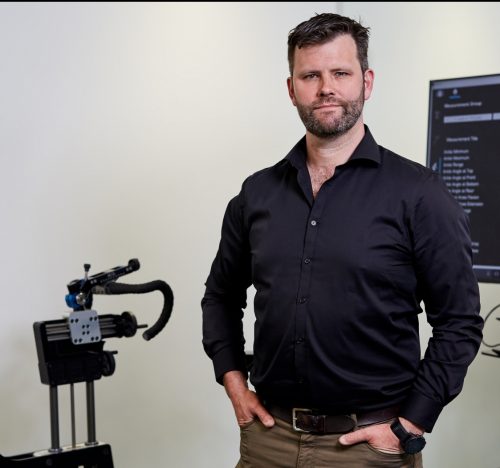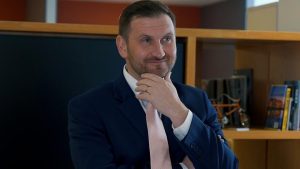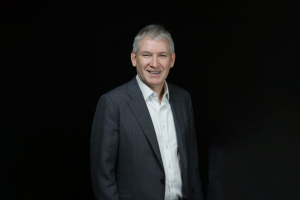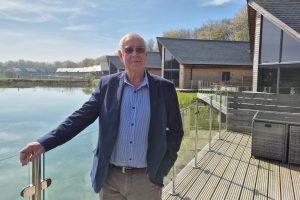Burt goes for gold with new cycling business

A physiotherapist who became a vital cog in the wheel of British Cycling’s incredible Manchester success story is now offering his gold medal winning services to the UK’s growing band of amateur enthusiasts.
Phil Burt spent 12 years as Head Physiotherapist at British Cycling, then five years as Consultant Physiotherapist at Team Sky, supporting Britain’s elite cyclists at seven Tour De Frances and three Olympic Games, where he was instrumental in helping to secure 24 gold medals.
Geraint Thomas ensured further Tour De France glory for Team Sky with his impressive victory in Paris at the weekend.
He has now launched Phil Burt Innovation at a base within the Manchester Institute of Health and Performance, East Manchester, where his services include physiotherapy and bike fit.
Burt will also work alongside manufacturers and equipment suppliers to develop new products, capitalising on the expertise he gained as a global trouble shooter for British Cycling and Team GB athletes.
A particular focus will be the design of more suitable saddles for female cyclists – Burt helped to develop saddles for Victoria Pendleton and has conducted extensive research into issues relating to saddles for female riders.
Alongside being a physiotherapist, the ergonomics of cycling became a real focus for Burt during his time at British Cycling.
Burt was a leading member of British Cycling’s “Secret Squirrel” club, which innovated to ensure that Team GB cyclists could continue to maintain the marginal gains and competitive advantage which made them world beaters.
He became a trouble shooter for British Cycling and the English Institute of Sport, travelling the world to seek solutions to saddle problems and other equipment-related issues.
“It became really important to injury prevention, aerodynamics, bike set up,” he says.
Having supported performance increases for elite cyclists including Chris Froome, Sir Chris Hoy, Bradley Wiggins and Victoria Pendleton, Burt adds: “Those athletes, I could probably improve by around one per cent.
“That one per cent is really important because it means the difference between winning and losing. But I can improve your performance by around 30 per cent and that’s the message I’m trying to get out there.
“I’ve been anywhere in the world to find out what I want about the things that can improve your performance as cyclist.
“One of the things I discovered when I joined British Cycling was that there was no manual on how to fit somebody onto a bike. I often say that you’re adaptable and the bike’s adjustable.”
Burt worked as head physiotherapist for Sale Sharks before joining British Cycling.
He is the author of “Bike Fit” by Bloomsbury Sport; a best selling sports book.
He is contributing Author to “Sports Medicine” – Brukner & Khan, 2017. His second “Strength and Conditioning for Cyclists” will be released in Sept 2018.
He came to Manchester to study physiotherapy at the University of Manchester and plans to open a second clinic in London later this year.
Charging £350 for a two-hour session, Burt says his customers will include age-group triathletes and people who are struggling to enjoy cycling due to injury or poor ergonomics.
Given Manchester’s global reputation as a centre for cycling, he is understandably enthusiastic about the measures being taken in Manchester by walking and cycling commissioner Chris Boardman to increase participation, including proposals for 75 miles of new Beeline cycling routes.
“We don’t have the infrastructure in this country for people to cycle. That’s major barrier to more participation. If you give people the space to cycle in, safely, then that can make a difference.
“I want to get involved in removing the barriers to people doing that healthily,” he adds. “For certain populations, maybe female riders, they could have better saddles, better chamois. People are starting cycling and stopping it very quickly because they find it painful.
“I want to get more involved in getting kids to cycle to school. I meet parents, who say it’s just too dangerous. But if we’re going to get healthier as a nation, and be like one of those countries like Copenhagen and Amsterdam, then we need to change things.
“Winning medals inspires people to take up cycling, but we’ve got to make sure those changes happen to make people want to take up cycling.
“We’ve now been to three Olympics and won loads of medals, but is it about winning loads of medals again? Or is it about enabling a nation to adopt cycling, which we all know is better for the environment, better for our overall health? What Chris Boardman is doing in Manchester can help achieve that.”







